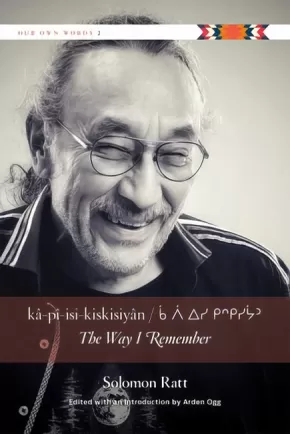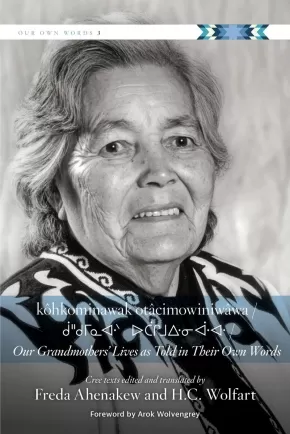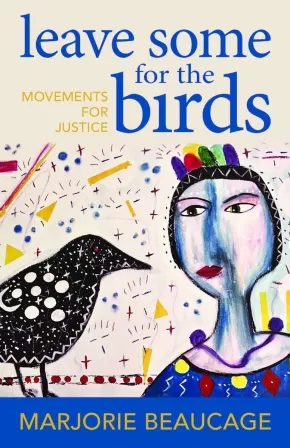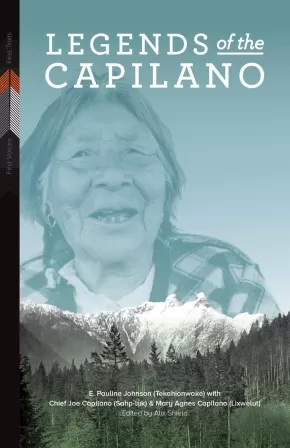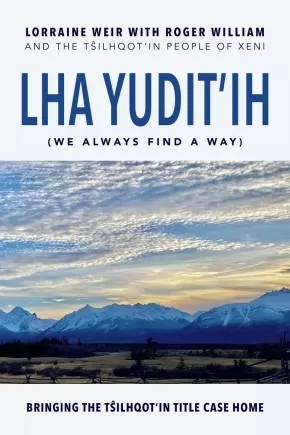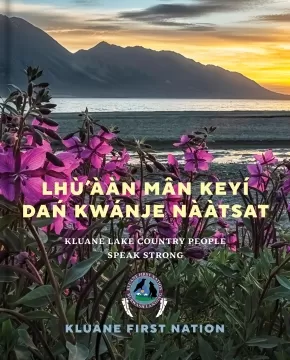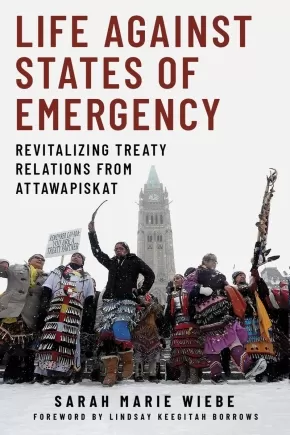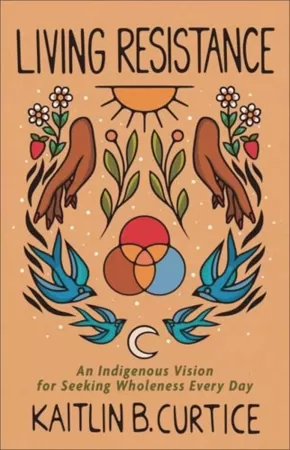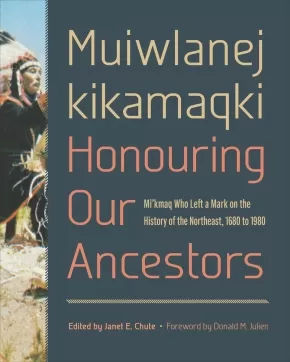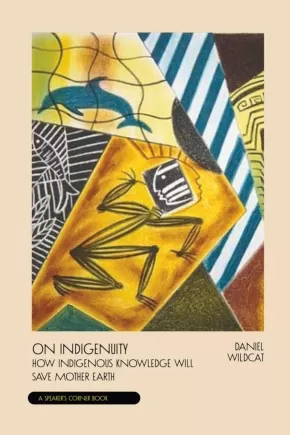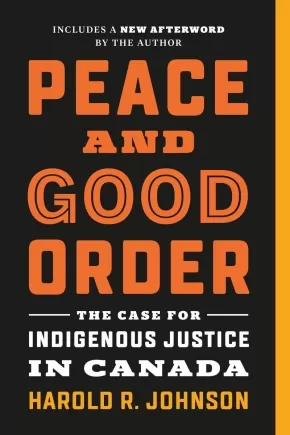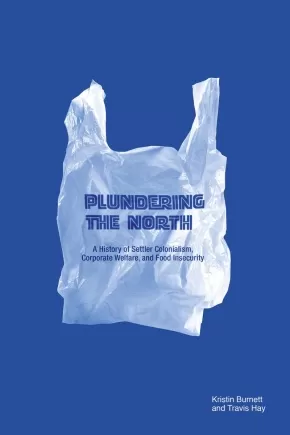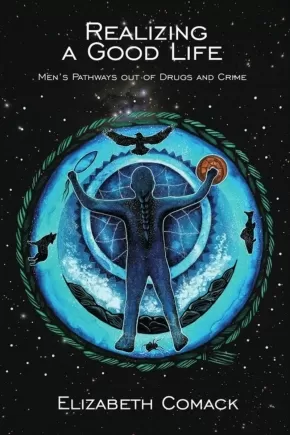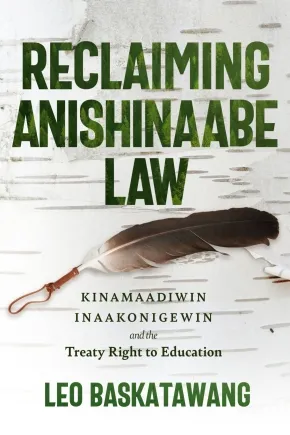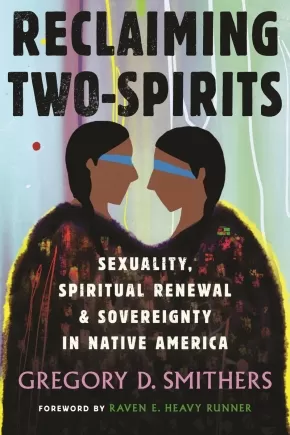Social and Cultural Studies
Synopsis:
A residential school survivor finds his way back to his language and culture through his family’s traditional stories.
When reflecting on forces that have shaped his life, Solomon Ratt says his education was interrupted by his schooling. Torn from his family at the age of six, Ratt was placed into the residential school system—a harsh, institutional world, operated in a language he could not yet understand, far from the love and comfort of home and family. In kâ-pî-isi-kiskisiyân / The Way I Remember, Ratt reflects on these memories and the life-long challenges he endured through his telling of âcimisowin—autobiographical stories—and also traditional tales.
Written over the course of several decades, Ratt describes his life before, during, and after residential school. In many ways, these stories reflect the experience of thousands of other Indigenous children across Canada, but Ratt’s stories also stand apart in a significant way: he managed to retain his mother language of Cree by returning home to his parents each summer despite the destruction wrought by colonialism.
Ratt then shifts from the âcimisowina (personal, autobiographical stories) to âcathôhkîwina, (sacred stories) the more formal and commonly recognized style of traditional Cree literature, to illustrate how, in a world uninterrupted by colonialism and its agenda of genocide, these traditional stories would have formed the winter curriculum of a Cree child’s education.
Presented in Cree Th-dialect Standard Roman Orthography, syllabics, and English, Ratt’s reminiscences of residential school escapades almost always end with a close call and a smile. Even when his memories are dark, Ratt’s particularly Cree sense of humour shines, making kâ-pî-isi-kiskisiyân /The Way I Remember an important and unique memoir that emphasizes and celebrates Solomon Ratt’s perseverance and life after residential school.
Reviews
"Sol is an international treasure the whole world should enjoy." —Buffy Sainte-Marie
"The Way I Remember is inarguably the most important book yet to be published for the preservation of the Cree language and an understanding of the importance of the oral tradition to Cree culture and education." —Jesse Archibald-Barber, First Nations University of Canada
"As he looks back over his life journey reclaiming, breathing new and old life back into our beautiful language, Solomon credits the late Reverend Edward Ahenekew for helping me "to put the pieces together." kista meena dear Solomon, ekosi aytotumawiyak. This is an important book because you have also put pieces together for us so that we can have a good journey. Kinahnaskomtin." —Maria Campbell, author of Halfbreed
"A gift to future generations...Full of humour and resilience in equal measure, these Cree/English stories offer us a glimpse into a world as it was, and future that could be" —Chelsea Vowel, author of Indigenous Writes
Educator & Series Information
Presented in Cree Th-dialect Standard Roman Orthography, syllabics, and English.
This book is part of the Our Own Words series.
Additional Information
264 pages | 6.00" x 9.00" | Paperback
Synopsis:
The 25th anniversary of a historically significant collection, presented in Cree and English.
kôhkominawak otâcimowiniwâwa / Our Grandmothers’ Lives is a collection of reminiscences and personal stories from the daily lives of seven Cree women over the past century, presented here in Cree and English. Recorded in their own language, these women share their memories of their lives and the history of their peoples, describing activities such as household chores, snaring rabbits and picking berries, going to school, marriage, bearing and raising children, and providing insights into the traditional teachings of a society in which the practical and spiritual are never far apart.
Reviews
"[T]hese ... are good stories to share ... and are absolute treasures." —Chelsea Vowel, author of Buffalo is the New Buffalo
Educator & Series Information
This book is part of the Our Own Words series.
Presented in Cree and English.
Additional Information
418 pages | 6.00" x 9.00" | Paperback
Synopsis:
From acclaimed filmmaker, artist and activist Marjorie Beaucage comes a poetic memoir that reflects on seven decades of living and seeking justice as a Two Spirit Michif woman. Poems, poetic observations and thoughtful meanderings comprise this inspirational journal-memoir-poetry collection from a woman who has dedicated her life and her talent to creating social change. Unfolding the wisdom gained from experience, leave some for the birds: movements for justice offers guidance for younger activists following the author's trailblazing footsteps.
Reviews
"I have long admired Margie's tenacious ability to persevere in spite of the obstacles placed in front of her. She continues to challenge the status quo and hangs onto what is right and just. She awakens, supports and lifts the many voices who struggle to be heard. Her voice dives deep into the depth of unknown and bewildering waters. Yet, she bubbles to the surface, takes a breath and howls with a universal plea to pay attention to the injuries imposed on the land and its people. I am honored to walk with her."--Louise B. Halfe - Sky Dancer, author of The Crooked Good.
Additional Information
211 pages | 6.00" x 9.00" | 7 Illustrations | Paperback
Synopsis:
Bringing the Legends home
Legends of the Capilano updates E. Pauline Johnson’s 1911 classic Legends of Vancouver, restoring Johnson’s intended title for the first time. This new edition celebrates the storytelling abilities of Johnson’s Skwxwú7mesh (Squamish) collaborators, Joe and Mary Capilano, and supplements the original fifteen legends with five additional stories narrated solely or in part by Mary Capilano, highlighting her previously overlooked contributions to the book.
Alongside photographs and biographical entries for E. Pauline Johnson, Joe Capilano, and Mary Capilano, editor Alix Shield provides a detailed publishing history of Legends since its first appearance in 1911. Interviews with literary scholar Rick Monture (Mohawk) and archaeologist Rudy Reimer (Skwxwú7mesh) further considers the legacy of Legends in both scholars’ home communities. Compiled in consultation with the Mathias family, the direct descendants of Joe and Mary Capilano and members of the Skwxwú7mesh Nation, this edition reframes, reconnects, and reclaims the stewardship of these stories.
Reviews
"Shield has skilfully opened up a new avenue to the past with potentially wide-ranging appeal both to scholars and students and to general readers."— Jean Barman
Educator Information
This book is part of the First Voices, First Texts series.
Additional Information
256 pages | 5.50" x 8.50" | Paperback
Synopsis:
Eight years in the making, Lha yudit’ih (We Always Find a Way) is a community oral history of Tsilhqot’in Nation v. British Columbia, the first case in Canada to result in a declaration of Aboriginal Rights and Title to a specific piece of land. Told from the perspective of the Plaintiff, Chief Roger William, joined by fifty Xeni Gwet’ins, Tŝilhqot’ins, and allies, this book encompasses ancient stories of creation, modern stories of genocide through smallpox and residential school, and stories of resistance including the Tŝilhqot’in War, direct actions against logging and mining, and the twenty-five-year battle in Canadian courts to win recognition of what Tŝilhqot’ins never gave up and have always known. “We are the land,” as Chief Roger says. After the violence of colonialism, he understands the court case as “bringing our sight back.” This book witnesses the power of that vision, its continuity with the Tŝilhqot’in world before the arrival of colonizers two centuries ago, and its potential for a future of freedom and self-determination for the Tŝilhqot’in People.
Additional Information
480 pages | 6.49" x 9.48" | 32 page colour photograph insert and black and white photos and illustrations and maps throughout | Paperback
Synopsis:
In this poignant display of the resilience of language, culture, and community in the face of the profound changes brought by settlers, Kluane First Nation Elders share stories from their lives, knowledge of their traditional territory (A si Keyi, "my grandfather's country"), and insights on the building of their self-governing First Nation.
With generosity, diligence and deep commitment to their community, Elders from Lhu'aan Man Keyi (Kluane First Nation) recorded oral histories about their lives in the southwest Yukon. They shared wisdom, stories and songs passed down from grandparents, aunties and uncles, in Dan k'e (Southern Tutchone, Kluane dialect) and English. This years-long project arose from the Elders' desire for their children and future generations to know the foundations of language, culture, skills and beliefs that will keep them proud, healthy and strong. The Elders speak of life before the Alaska Highway, when their grandparents drew on thousands of years of traditional knowledge to live on the land through seasonal rounds of hunting and gathering; the dark years after the building of the Alaska Highway, when children were taken away to residential schools and hunting grounds were removed to form the Kluane Game Preserve and National Park; and the decades since, when the community worked through the Yukon land claims process to establish today's self-governing First Nation.
Inclusivity is a key community value. The Elders' stories are accompanied by the voices of youth and citizens of all ages, along with a history of the Kluane region. The book is beautifully illustrated with Elders' photographs, historical images and art work, and photos showing breathtaking views of Kluane mountains, lakes, sites, trails, and activities in the community today. With passionate and deeply informed voices, this is a stirring portrait created by a community that has shown resilience through massive changes and remains dedicated to preserving their culture, language and lands for the generations to come.
Awards
- 2024 Indigenous History Book Prize
Educator Information
Some of the wisdom, stories, and songs are in Dan k'e (Southern Tutchone, Kluane dialect).
Additional Information
384 pages | 11.25" x 9.00"| 150 colour and b&w photos | Hardcover
Synopsis:
For six weeks in 2012–13, Attawapiskat chief Theresa Spence undertook a high-profile ceremonial fast to advocate for improved Canadian-Indigenous relations. Life against States of Emergency responds to the central question she asked the Canadian public to consider: What does it mean to be in a treaty relationship today? This incisive research weaves together community-engaged research, Attawapiskat lived experiences, discourse analysis, ecofeminist and Indigenous studies scholarship, art, activism, and storytelling to advance a transformative, future-oriented approach to treaty relations. By centring community voices, Life against States of Emergency seeks to cultivate democratic dialogue about environmental justice.
Reviews
"Wiebe’s book is rich, thoughtful, and wise. It centres Indigenous realities and theories, allowing readers to understand how the past informs the present, why representation matters, and how to move collectively toward an environmentally just future."— Jocelyn Thorpe, director of the Centre for Creative Writing and Oral Culture at the University of Manitoba
Additional Information
312 pages | 6.00" x 9.00" | 19 b&w photos, 1 map | Paperback
Synopsis:
In an era in which "resistance" has become tokenized, popular Indigenous author Kaitlin Curtice reclaims it as a basic human calling. Resistance is for every human who longs to see their neighbors' holistic flourishing. We each have a role to play in the world right where we are, and our everyday acts of resistance hold us all together.
Curtice shows that we can learn to practice embodied ways of belonging and connection to ourselves and one another through everyday practices, such as getting more in touch with our bodies, resting, and remembering our ancestors. She explores four "realms of resistance"--the personal, the communal, the ancestral, and the integral--and shows how these realms overlap and why all are needed for our liberation. Readers will be empowered to seek wholeness in whatever spheres of influence they inhabit.
Reviews
"Readers will find abundant wisdom in this accessible guide."--Publishers Weekly
"Curtice is a fresh and intelligent voice."--Library Journal
Educator Information
Table of Contents
Introduction
Part 1: The Personal Realm
1. What Is Resistance?
2. Art as Resistance
3. Presence as Resistance
4. Embodiment as Resistance
5. Radical Self-Love as Resistance
Part 2: The Communal Realm
6. Childcare as Resistance
7. Ethical Practices as Resistance
8. Solidarity Work as Resistance
9. Protecting the Land as Resistance
10. Kinship as Resistance
Part 3: The Ancestral Realm
11. Decolonizing as Resistance
12. Generosity as Resistance
13. Intergenerational Healing as Resistance
14. Liminality as Resistance
15. Facing History as Resistance
Part 4: The Integral Realm
16. Integration as Resistance
17. Interspiritual Relationship as Resistance
18. Prayer as Resistance
19. Dreaming as Resistance
20. Lifelong Resistance
Includes Acknowledgements, Notes, and an Author Bio at the end of the work.
Additional Information
208 pages | 5.50" x 8.50" | Hardcover
Synopsis:
Drawing upon oral and documentary evidence, this volume explores the lives of noteworthy Mi’kmaw individuals whose thoughts, actions, and aspirations impacted the history of the Northeast but whose activities were too often relegated to the shadows of history.
The book highlights Mi’kmaw leaders who played major roles in guiding the history of the region between 1680 and 1980. It sheds light on their community and emigration policies, organizational and negotiating skills, diplomatic endeavours, and stewardship of land and resources. Contributors to the volume range from seasoned scholars with years of research in the field to Mi’kmaw students whose interest in their history will prove inspirational. Offering important new insights, the book re-centres Indigenous nationhood to alter the way we understand the field itself. The book also provides a lengthy index so that information may be retrieved and used in future research.
Muiwlanej kikamaqki – Honouring Our Ancestors will engage the interest of Indigenous and non-Indigenous readers alike, engender pride in Mi’kmaw leadership legacies, and encourage Mi’kmaw youth and others to probe more deeply into the history of the Northeast.
Reviews
"This book is an invaluable and original offering. Muiwlanej kikamaqki – Honouring Our Ancestors makes a significant contribution to Mi’kmaq history by successfully bringing little-known individuals into the light and by placing them in a historical context that is uniquely informed by both written and oral narratives. For Mi’kmaq wanting to know more about their history, this book will be a wonderful source." - Natasha Simon, Nihkanatpat (Director) of the Mi’kmaq-Wolastoqey Centre, University of New Brunswick
"This book is deeply researched, both in written sources and in integrating the invaluable evidence of Indigenous knowledge. The detailed individual and family histories are uniquely effective in bringing out both changes and continuities in Mi’kmaw history and in the texture of Mi’kmaw interactions with non-Indigenous sojourners and settlers. With a remarkable and outstanding depth of scholarship, the book meticulously pursues biography as an approach that can be extended to people whose lives have too often been deemed to be insufficiently documented for conventional purposes, in order to take our historical understanding in innovative and productive directions."- John Reid, Professor of History, Saint Mary’s University
Additional Information
1004 pages | 8.00" x 10.00"| 62 b&w illustrations | Hardcover
Synopsis:
Mother Earth is calling on us to act—the collective wisdom of thousands of years of Indigenous knowledge can guide us.
Indigenuity, or Indigenous ingenuity, stems from an ancient idea and practice that Native peoples have engaged in for millennia. It was born of a careful mindfulness and attentiveness to our planet and all of its creatures, and a recognition that human experience is intertwined with all that surrounds us. As a society, we rarely pay attention to our land, air, and water, exacting a high price for all life on this planet. On Indigenuity is a call for us to learn a key lesson: it’s time to apply ancient Indigenous wisdom to solve modern problems.
The author, leading Indigenous thinker Daniel Wildcat, discusses some of the most important Native knowledge that is the foundation of science, the environment, biology, and our culture, arguing that restoration through the practice of Indigenuity is essential if we are to make progress toward saving our home.
By surrounding ourselves with human creations, Wildcat contends that we have created an “insulated ignorance” for ourselves, and what we need to solve the problems of the twenty-first century is a different perspective. Drawing upon history, personal experiences, and extensive research, Wildcat invites readers on a profound journey of discovery, bridging the gap between how we’ve already tried to help our planet and the traditional Indigenous knowledge that could be the key to making a real difference.
Reviews
“Dan Wildcat’s evocative essay . . . On Indigenuity, is a compelling framework to rethink the role of the western worldview in shaping our physical and cultural landscapes. These critical reflections invite deep engagement with Indigenous ways of knowing and being, to heal land and our relationships to the living world. He helps us to remember ourselves as kinfolk, in service to mutual thriving of people and planet.”—Robin Wall Kimmerer, Author of Braiding Sweetgrass
“In On Indigenuity, Daniel Wildcat makes a passionate plea for a paradigm shift to viewing the world as full of relatives instead of resources. This eco-kinship vision of the world, rooted in Indigenous wisdom and ingenuity, provides us with a powerful approach to addressing the challenges of the Anthropocene. Given the climate crisis now upon us, this book is a must-read!”—Marika Holland, Senior Scientist, National Center for Atmospheric Research
"On Indigenuity is a value-based, ethical blueprint for partnering with ourselves and the planet to heal and protect, guiding us through the challenges of climate change toward regenerative living, a type of living our Indigenous relatives have known for hundreds of years.”—Jerry Floersch, Professor Emeritus, Rutgers University School of Social Work
“If you believe that, in order to confront the pending and growing global climate crisis, we need to do something differently, or even if you are merely open to that idea, you should read this book. Professor Wildcat draws from his lifetime of experience and exposure to many Indigenous cultures of this hemisphere, and many of the greatest Indigenous thinkers of our time, to carefully and clearly explain the only hopeful way out of our current predicament. Wildcat calls for Indigenuity, an application of thinking grounded in worldviews that see humankind as living in a world of relatives, in relationship, rather than full of resources to be consumed and exploited. We must abandon the anthropocentric worldview that has led to the Anthropocene era in which we have been living to correct the destructive ways that have led us to the current predicament. Indigenous worldviews, and their resulting approaches to living in the world, offer the only compelling path to continued human existence. For those who have worked to help protect and revitalize those traditional Indigenous cultures and worldviews, Dr. Wildcat’s message comes at a critical time, as we all face the consequences of the dominant settler-based worldview that has led us to this point. Now, increasing numbers of descendants of settlers are recognizing the importance of listening to and meaningfully collaborating with Indigenous peoples as they recover and breathe life into their own place-based cultures derived over millennia of experiential learning about how to live in collaboration with the rest of life in their locales. We are living in a time where we must make room for a new, old, way to come to the forefront of how we approach our position in this world.”—Brett Lee Shelton (Oceti Sakowin Oyate-Oglala Lakota), Senior Staff Attorney, Native American Rights Fund
Additional Information
144 pages | 5.00" x 8.00" | Paperback
Synopsis:
An urgent, informed, intimate condemnation of the Canadian state and its failure to deliver justice to Indigenous people by national bestselling author and former Crown prosecutor Harold R. Johnson. Now with a brand new foreward.
"The night of the decision in the Gerald Stanley trial for the murder of Colten Boushie, I received a text message from a retired provincial court judge. He was feeling ashamed for his time in a system that was so badly tilted. I too feel this way about my time as both defence counsel and as a Crown prosecutor; that I didn't have the courage to stand up in the courtroom and shout 'Enough is enough.' This book is my act of taking responsibility for what I did, for my actions and inactions." -- Harold R. Johnson
In early 2018, the failures of Canada's justice system were sharply and painfully revealed in the verdicts issued in the deaths of Colten Boushie and Tina Fontaine. The outrage and confusion that followed those verdicts inspired former Crown prosecutor and bestselling author Harold R. Johnson to make the case against Canada for its failure to fulfill its duty under Treaty to effectively deliver justice to Indigenous people, worsening the situation and ensuring long-term damage to Indigenous communities.
In this direct, concise, and essential volume, Harold R. Johnson examines the justice system's failures to deliver "peace and good order" to Indigenous people. He explores the part that he understands himself to have played in that mismanagement, drawing on insights he has gained from the experience; insights into the roots and immediate effects of how the justice system has failed Indigenous people, in all the communities in which they live; and insights into the struggle for peace and good order for Indigenous people now.
Additional Information
272 pages | 5.00" x 7.51" | B&W photo spread in text | Paperback
Synopsis:
The manufacturing of a chronic food crisis.
Food insecurity in the North is one of Canada’s most shameful public health and human rights crises. In Plundering the North, Kristin Burnett and Travis Hay examine the disturbing mechanics behind the origins of this crisis: state and corporate intervention in northern Indigenous foodways.
Despite claims to the contrary by governments, the Hudson’s Bay Company (HBC), and the contemporary North West Company (NWC), the exorbitant cost of food in the North is neither a naturally occurring phenomenon nor the result of free-market forces. Rather, inflated food prices are the direct result of government policies and corporate monopolies. Using food as a lens to track the institutional presence of the Canadian state in the North, Burnett and Hay chart the social, economic, and political changes that have taken place in northern Ontario since the 1950s. They explore the roles of state food policy and the HBC and NWC in setting up, perpetuating, and profiting from food insecurity while undermining Indigenous food sovereignties and self-determination.
Plundering the North provides fresh insight into Canada’s settler colonial project by re-evaluating northern food policy and laying bare the governmental and corporate processes behind the chronic food insecurity experienced by northern Indigenous communities.
Reviews
“Spanning the late nineteenth century to the current day, Plundering the North provides meticulous detail about the ways in which HBC and NWC operated as agents of the state’s settler-colonial ambitions while the state subsidized the processes and profits of those private corporations. This is a valuable, unique, and timely contribution.”— Elaine Power
Additional Information
232 pages | 6.00" x 9.00" | Index, Bibliography | Paperback
Synopsis:
Realizing a good life is almost always defined in material terms, typified by individuals (usually men) who have considerable wealth. But classed, gendered, and racialized social supports enable the “self-made man.” Instead, this book turns to Indigenous knowledge about realizing a good life to explore how marginalized men endeavour to overcome systemic inequalities in their efforts to achieve wholeness, balance, connection, harmony, and healing.
Twenty-three men, most of whom are Indigenous, share their stories of this journey. For most, the pathway started in challenging circumstances — intergenerational trauma, disrupted families and child welfare interventions, racism and bullying, and physical and sexual abuse. Most coped with the pain through drugging and drinking or joining a street gang, setting many on a trajectory to jail. Caught in the criminal justice net, realizing a good life was even more daunting as their identities and life chances became barriers.
Some of the men, however, have made great strides to realize a good life. They tell us how they got out of “the problem,” with insights on how to maintain sobriety, navigate systemic barriers, and forge connections and circles of support. Ultimately, it comes down to social supports — and caring. As one man put it, change happened when he “had to care for somebody else” in a way he wanted to be cared for.
Educator Information
Chapter 1. Realizing a Good Life
Chapter 2. Getting into The Problem
Chapter 3. Being in The Problem
Chapter 4. Getting Out of The Problem
Chapter 5. Bringing It to a Close
The Indigenous Text label is applied because of the Indigenous contributions to this work. Its up to readers to determine if this works as an authentic text for their purposes.
Additional Information
256 pages | 6.00" x 9.00" | Paperback
Synopsis:
A manifesto for the future of Indigenous Education in Canada
In Reclaiming Anishinaabe Law Leo Baskatawang traces the history of the neglected treaty relationship between the Crown and the Anishinaabe Nation in Treaty #3, and the Canadian government’s egregious failings to administer effective education policy for Indigenous youth—failures epitomized by, but not limited to, the horrors of the residential school system.
Rooted in the belief that Indigenous education should be governed and administered by Indigenous peoples, Baskatawang envisions a hopeful future for Indigenous nations where their traditional laws are formally recognized and affirmed by the governments of Canada. Baskatawang thereby details the efforts being made in Treaty #3 territory to revitalize and codify the Anishinaabe education law, kinamaadiwin inaakonigewin. Kinamaadiwin inaakonigewin considers education wholistically, such that it describes ways of knowing, being, doing, relating, and connecting to the land that are grounded in tradition, while also positioning its learners for success in life, both on and off the reserve.
As the backbone of an Indigenous-led education system, kinamaadiwin inaakonigewin enacts Anishinaabe self-determination, and has the potential to bring about cultural resurgence, language revitalization, and a new era of Crown-Indigenous relations in Canada. Reclaiming Anishinaabe Law challenges policy makers to push beyond apologies and performative politics, and to engage in meaningful reconciliation practices by recognizing and affirming the laws that the Anishinaabeg have always used to govern themselves.
Reviews
"Leo Baskatawang offers a passionate call for Indigenous self-determination and a reclamation of Anishinaabe education law and practice in raising up the next generation. This book can be used to envision a future that uses Indigenous treaties to drive systemic change in education."— Brittany Luby
Additional Information
240 pages | 6.00" x 9.00" | b&w illustrations, maps, index, bibliography | Paperback |
Synopsis:
A sweeping history of Indigenous traditions of gender, sexuality, and resistance that reveals how, despite centuries of colonialism, Two-Spirit people are reclaiming their place in Native nations.
Reclaiming Two-Spirits decolonizes the history of gender and sexuality in Native North America. It honors the generations of Indigenous people who had the foresight to take essential aspects of their cultural life and spiritual beliefs underground in order to save them.
Before 1492, hundreds of Indigenous communities across North America included people who identified as neither male nor female, but both. They went by aakíí’skassi, miati, okitcitakwe, or one of hundreds of other tribally specific identities. After European colonizers invaded Indian Country, centuries of violence and systematic persecution followed, imperiling the existence of people who today call themselves Two-Spirits, an umbrella term denoting feminine and masculine qualities in one person.
Drawing on written sources, archaeological evidence, art, and oral storytelling, Reclaiming Two-Spirits spans the centuries from Spanish invasion to the present, tracing massacres and inquisitions and revealing how the authors of colonialism’s written archives used language to both denigrate and erase Two-Spirit people from history. But as Gregory Smithers shows, the colonizers failed—and Indigenous resistance is core to this story. Reclaiming Two-Spirits amplifies their voices, reconnecting their history to Native nations in the 21st century.
Reviews
“Reclaiming Two-Spirits is by far the most compelling study to date of an evolving tradition and way of life that has always operated according to a cultural logic of its own and that we can appreciate fully only by taking that cultural logic seriously. Setting aside Anglo-American assumptions and categories, Smithers has listened closely to Two-Spirit people in the present and to traces of their voices in historical sources. This book is a major contribution to our understanding of Native American cultures and to an authentically diverse history of gender and sexuality.” —Richard Godbeer, author of Sexual Revolution in Early America
“From the onset of colonization until well into the present, the discourse and histories of Two-Spirit Indigenous peoples remains a puzzle for Indigenous and non-Indigenous people alike. Reclaiming Two-Spirits will help you solve that puzzle. Using familiar and obscure stories, Smithers skillfully reveals the centrality of Two-Spirit struggles within the matrix of settler colonial domination and the Indigenous struggle for freedom. He reveals the destructive nature of colonial violence and the possibilities of a Two-Spirit future. An original contribution to Indigenous cultural and intellectual histories, an understanding of the links between language and power, and Indigenous futures, this book will not only educate your mind, but will also touch your spirit.” —Kyle T. Mays (Black/Saginaw Chippewa), author of An Afro-Indigenous History of the United States
Awards
- Winner of the 2023 Prose Award in Cultural Anthropology and Sociology
Additional Information
368 pages | 5.97" x 9.01" | Paperback

